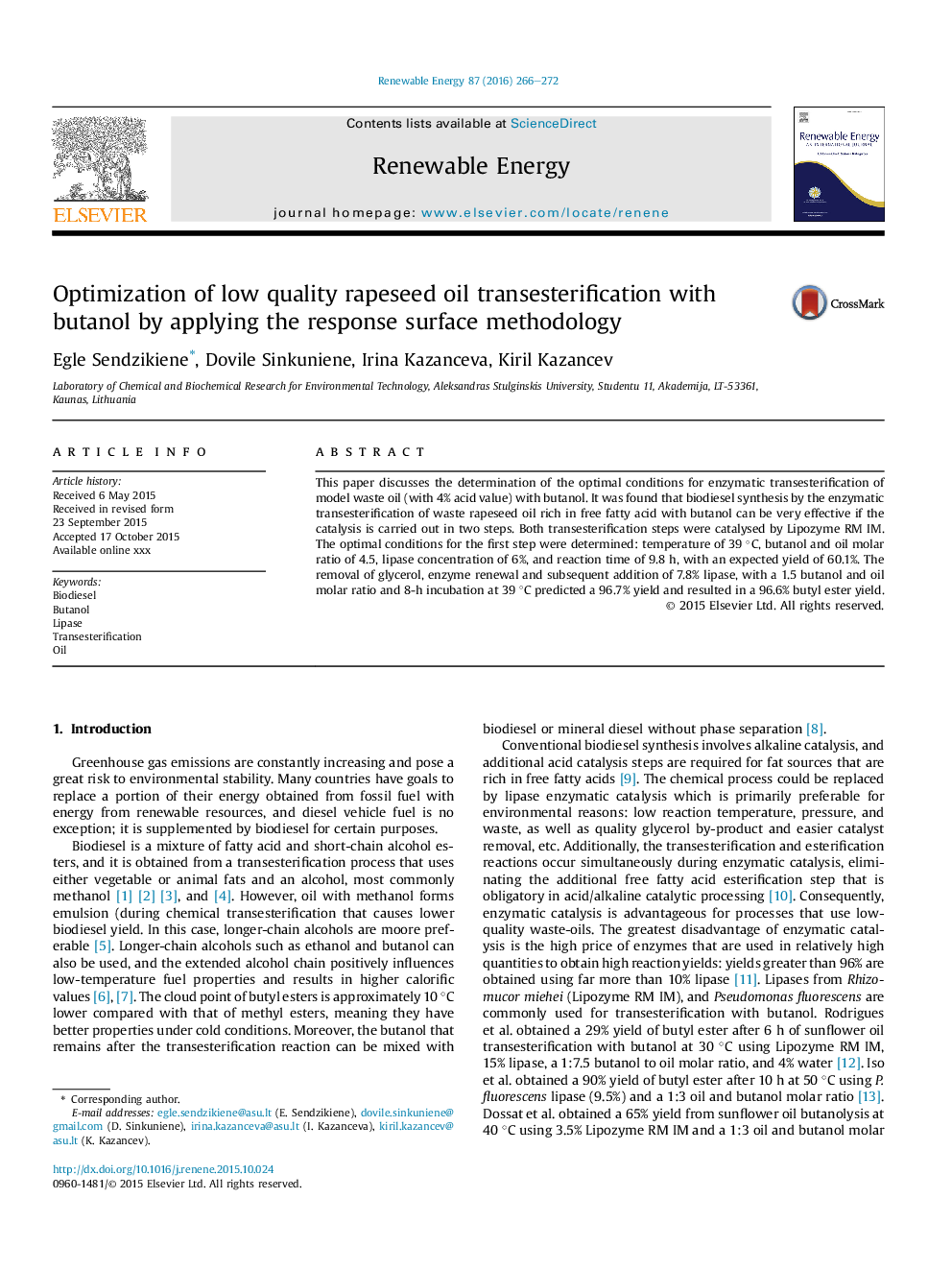| Article ID | Journal | Published Year | Pages | File Type |
|---|---|---|---|---|
| 10293967 | Renewable Energy | 2016 | 7 Pages |
Abstract
This paper discusses the determination of the optimal conditions for enzymatic transesterification of model waste oil (with 4% acid value) with butanol. It was found that biodiesel synthesis by the enzymatic transesterification of waste rapeseed oil rich in free fatty acid with butanol can be very effective if the catalysis is carried out in two steps. Both transesterification steps were catalysed by Lipozyme RM IM. The optimal conditions for the first step were determined: temperature of 39 °C, butanol and oil molar ratio of 4.5, lipase concentration of 6%, and reaction time of 9.8 h, with an expected yield of 60.1%. The removal of glycerol, enzyme renewal and subsequent addition of 7.8% lipase, with a 1.5 butanol and oil molar ratio and 8-h incubation at 39 °C predicted a 96.7% yield and resulted in a 96.6% butyl ester yield.
Related Topics
Physical Sciences and Engineering
Energy
Renewable Energy, Sustainability and the Environment
Authors
Egle Sendzikiene, Dovile Sinkuniene, Irina Kazanceva, Kiril Kazancev,
